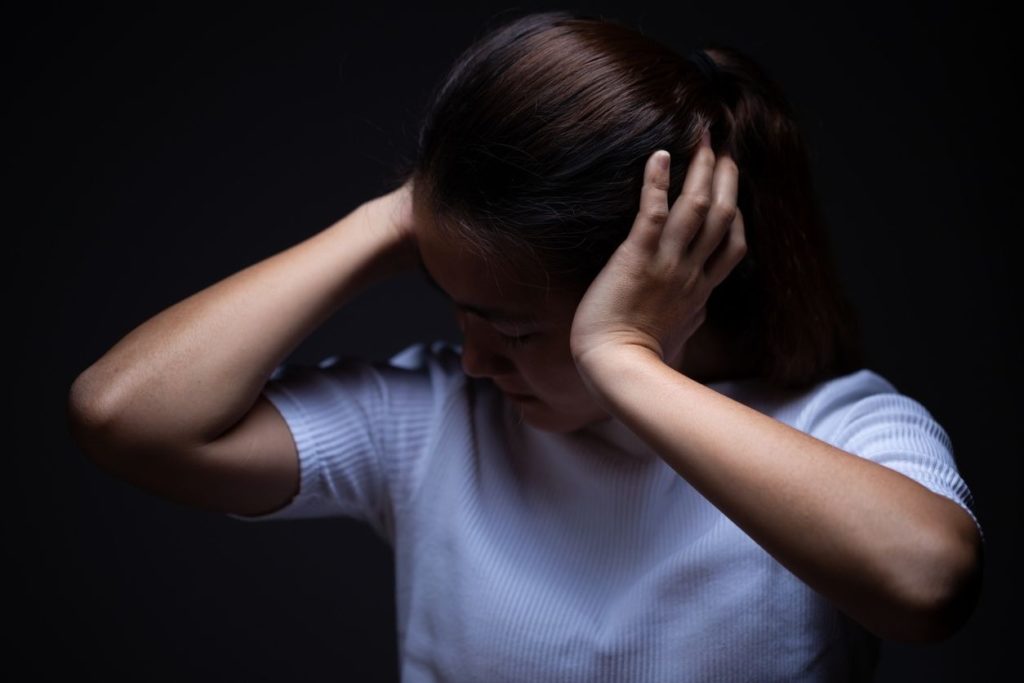Dizziness and blocked ear: what to do?
Caution : You must consult your doctor for your health. This page presents only a personal and alternative point of view which should not be considered as an attempt to prescribe medicine.
Shortness of breath, dizziness and blocked ear, what is the link between these different ailments?
In fact, shortness of breath and blocked ears can easily cause dizziness.
In this article, we will present not only their causes and consequences, but also the useful solutions to provide you with better well-being.

What are the potential causes?
Although shortness of breath and blocked ears lead to dizziness, we will present the causes of each condition separately.
Causes of vertigo
Dizziness is caused by:
- ear diseases (Ménière's disease, ear infections, etc.),
- shortness of breath,
- neurological disorders (stroke, head trauma, etc.),
- exposure to harmful substances (drugs, alcohol, etc.).
Causes of blocked ears
Several situations can justify this.
We can quote:
- nasopharyngitis or the common cold,
- ear infections (ear infection),
- sinusitis,
- barotrauma (gas disorder in the body),
- the presence of a foreign body, dirt (earwax),
- tumors, pimples and eczema in the ear.
In short, there are many causes of ear plugging.
Causes of shortness of breath
We can cite among others:
- Cardiac or respiratory pathologies (lung cancer, asthma, cardiac disorders, tuberculosis, etc.)
- Consumption of harmful substances (smoking, alcohol, carbon poisoning, etc.)
What are the consequences?
If you suffer from any of these conditions, the consequences for your daily life are as follows.
The effects of vertigo
- fatigue,
- nausea and vomiting,
- turbulence, injuries or fractures associated with sudden falls.
The effects of blocked ears
Beyond dizziness, blocked ears lead to:
- poor hearing: you have difficulty listening or hearing what is said around you,
- an underestimation of yourself: at this level, your pain will weaken you, depression and withdrawal can take hold of you.
The effects of shortness of breath
The consequences here are:
- breathing difficulties: your airways may be completely or slightly blocked,
- Limited movement and daily activities: Poor breathing will limit your efforts, making it difficult for you to perform overly demanding tasks such as sports and even routine housework.
What are the treatments?
With regard to these problems, in principle, it is after a diagnosis that a doctor will be able to offer adequate treatment.
Based on the advice of various professionals, here are the most effective treatments.
For vertigo
Depending on their origins, the treatment of vertigo can lead to hospitalization.
Thus, in case of vestibular neuritis, tranquilizers against anxiety, antihistamine sedatives, or antiemetics against nausea and vomiting are recommended.
For other origins, the osteopathy sessions, homeopathy granules will be useful to you.
For blocked ears
The treatment of blocked ears also depends on its origin.
So in case of otitis, disinfect your ears with serum and take medication recommended by your doctor.
In the event of an earwax plug, use a product that can dissolve the plug.
You should avoid the use of cotton swabs to avoid pushing in the stoppers further.
For shortness of breath
If your shortness of breath is related to a respiratory problem, asthma or heart, your doctor will refer you to medical treatment.
If you are short of breath from other causes, you may not want to smoke, drink alcohol, or get close to harmful substances, for example.
Ultimately, the various pathologies presented above constitute recurrent ailments that affect a large number of individuals.
Through their causes, effects and treatments, you have surely understood them better.
However, do not take any treatment if it has not been suggested by your doctor.
❤ The ultimate guide to breathing
Intermittent Breathing : Discover the method to quickly relieve your anxiety and chronic fatigue (positive effects from the first use).Read also :
Previous article : How to improve your cardio while cycling?
Next article : Rapid shortness of breath when walking slowly: what to do?

